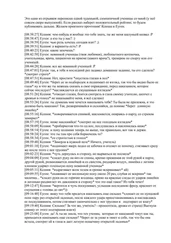She added that Ewert took a “defeatist attitude” to the question of peace, and that Radovan contravened the policy established by Dretzky while he was here in Mexico on the Jewish question, which was a particularly sensitive one for political work in Mexico (the Demokratische Post still had many bourgeois Jewish readers).
That was unfair, and she knew it. But was it fair to accuse her of infringing Party discipline?
“Can you write us something for the cultural page by the beginning of February?”
Radovan’s voice.
“One and a half standard pages, local references.”
Charlotte nodded and scribbled something in her diary. Did that mean she wasn’t reliable enough for the political pages these days?
In the evening she took a bath—it had become almost a habit on the day of the editorial meeting.
On Thursdays and Fridays she coached pupils in English and French, three hours each (earning more in two days than Wilhelm did in a week on the Demokratische Post ).
She spent the rest of the time before Wilhelm came home lying in the hammock on the roof garden, having the housemaid bring her nuts and mango juice, and immersing herself in books about pre-Columbian history. She was reading them for the article for the cultural page, or that was the excuse that no one asked her to give.
Over the weekend Wilhelm read Neues Deutschland, as usual. It always arrived from Germany in packages, at fourteen-day intervals. As he didn’t know either English or Spanish, ND was the only reading matter he had. He read every line of the newspaper, and it kept him occupied until late in the evening, with the exception of two half-hour walks that he took with the dog.
Charlotte saw to the housekeeping; she discussed menus for the coming week with Gloria the housemaid, looked through invoices, and watered her flowers. She had been raising a Queen of the Night flowering cactus on the roof terrace for a long time; she’d bought it years ago, even though she never expected to see it in flower.
On Monday Wilhelm went off to the printing works early, and Charlotte phoned Adrian and fixed to meet him at midday.
Adrian had been wanting to show her the colossal statue of Coatlicue for a long time. He had often told her about the Aztec earth goddess, and she had seen a photograph of the terrible figure. Coatlicue’s face was strange, consisting of two snakes’ heads facing one another and seen in profile, so that each snake had one eye and two teeth. The skull-like head of the goddess’s son Huitzilopochtli looked out of her womb. Around her neck, she wore a necklace of chopped-off hands and hearts ripped from bodies, a symbol of the sacrificial rites of the ancient Aztecs.
She had been found over a hundred and fifty years ago under the paving of the Zócalo, said Adrian as he sipped his coffee, looking at Charlotte as if there was an exam looming ahead.
This was her first visit to the university. Everything, even the coffee cups in Adrian’s office, seemed to her sacred. And Adrian himself looked even more imposing than usual, with his intellectual brow and his fine hands.
“She was dug up in 1790 and taken to the university,” said Adrian. “But the president at that time decided to have her buried in the Zócalo again. Her face was thought so appallingly hideous that she was reburied three times. Even after that, she stood behind a screen for decades, and was shown to visitors only as a kind of abstruse symbol.”
She followed Adrian through a labyrinth of passages and stairways, and then they reached the inner courtyard. Adrian turned Charlotte gently around—and she was looking at Coatlicue’s feet. She had expected a man-sized statue. Cautiously, her gaze moved up the figure, which was four meters high. She closed her eyes and turned away.
“Her beauty,” said Adrian, “lies in the way that horror is spellbound in aesthetic form.”
In January Charlotte wrote two standard pages on the dialectic of the concept of beauty in the art of the ancient Aztecs.
In February her article was rejected by the entire editorial committee, Wilhelm included, as too theoretical.
In March, entirely unexpectedly, it began to rain, and Adrian made her a proposal of marriage.
She wasn’t sleeping with Adrian. However, nor was she sleeping with Wilhelm, who had been sexually inactive since his exclusion from the Party leadership here.
They were sitting on the steps of the Pyramid of the Sun in Teotihuacán, where she and Adrian had gone together, and not for the first time. Charlotte looked out over the dead city at the wide, hilly landscape known as the Valley of Mexico, although in reality it was two thousand meters above sea level, and suddenly thought that she was now in a position to throw up the whole damn thing.
Instead, for once in her lifetime she could see the Queen of the Night flower.
But when she came home that evening and saw Wilhelm sitting on the floor beside the dog, she knew she couldn’t do it.
Even apart from that: would she ever see her sons again if she stayed in Mexico?
And apart from that again: did she really intend to spend the rest of her life teaching rich people’s children? Or ordering around the domestic staff of a widowed university professor?
And apart from all that: at the age of forty-nine?
In April a letter arrived from Dretzky, curiously enough dated April the first. As she concluded from the letterhead, Dretzky was now a state secretary in the Education Ministry. He said not a word about Charlotte’s report. Instead, he told them that two entry visas were waiting for them at the Soviet consulate, and asked them to set out on the return journey at once, so that they would be available to take up their new positions. Charlotte was to be head of the Institute for Literature and Languages at the Academy of Political Science and Jurisprudence, soon to be founded, and Wilhelm, whose wish to join the new Secret Service had not been approved because he was an immigrant from the West—Wilhelm was to be administrative director of the academy.
That evening they walked in Almeda Park, letting themselves drift with the flow of humanity. The music of a mariachi band came from far away, and they ate tortillas with gourd flowers just as they used to.
But it wasn’t the way it used to be.
Three mounted policemen moved slowly through the crowd, as if in slow motion. They all sported large, heavy sombreros, so large and heavy that they were not so much wearing them as balancing them on their heads. Their hats made the three mounted men look dignified and ridiculous at the same time. Representatives of the governmental power that had saved their lives twelve years ago… it was outlandish to think of the summons home as merely an April Fools’ trick. But wasn’t it also ridiculous, thought Charlotte, to think of Dretzky planning to make Wilhelm administrative director of an academy? Wilhelm hadn’t the faintest idea about administration. Basically, Wilhelm hadn’t the faintest idea about anything. Wilhelm was a mechanic, that was all.
He had indeed once—on paper—been codirector of Lüddecke & Co., Import and Export. But in the first place, on the grounds of his lifelong commitment to secrecy, he hadn’t even declared that fact in the CV required by the Party. And in the second place, Lüddecke Import and Export had been nothing but a spurious Russian-financed firm used by the Comintern secret service to smuggle people and goods over borders.
It had taken Wilhelm a very long time to find work in Mexico, and the job that he did get in the end was an admittedly well-paid position as bodyguard to a diamond dealer, which, apart from the fact that protecting a millionaire’s life and property offended Wilhelm’s proletarian honor, was particularly depressing because Wilhelm couldn’t shake off the feeling that he was being paid for his stupidity. Mendel Eder had hired him not although but because he knew no Spanish, and it was very convenient for the dealer to have a virtual deaf-mute sitting beside him while he conducted his negotiations.
Читать дальше












